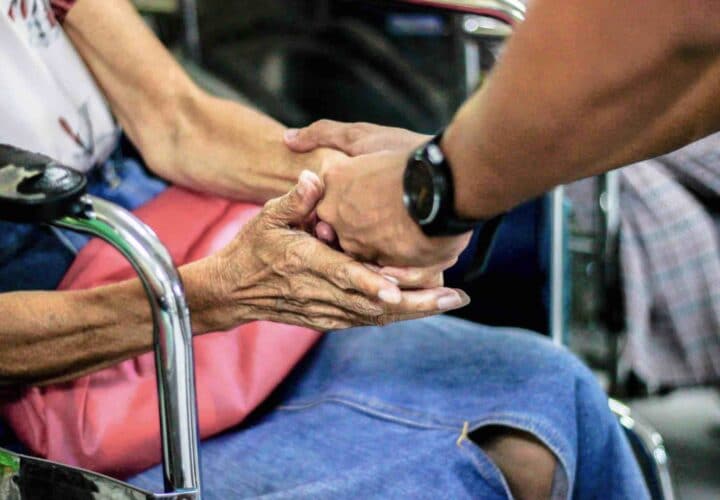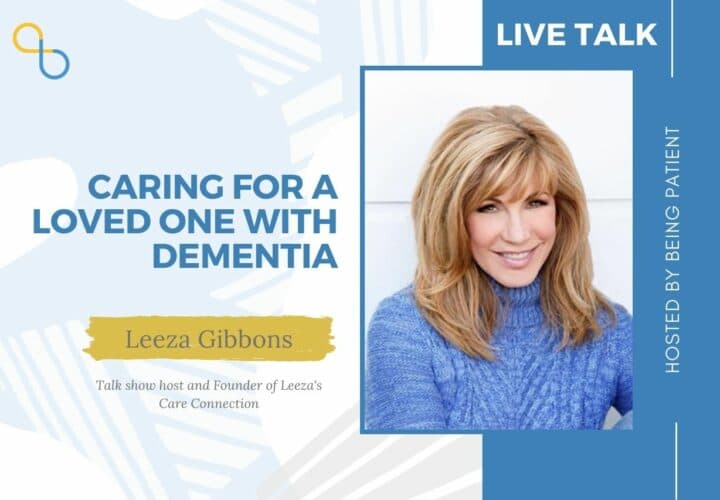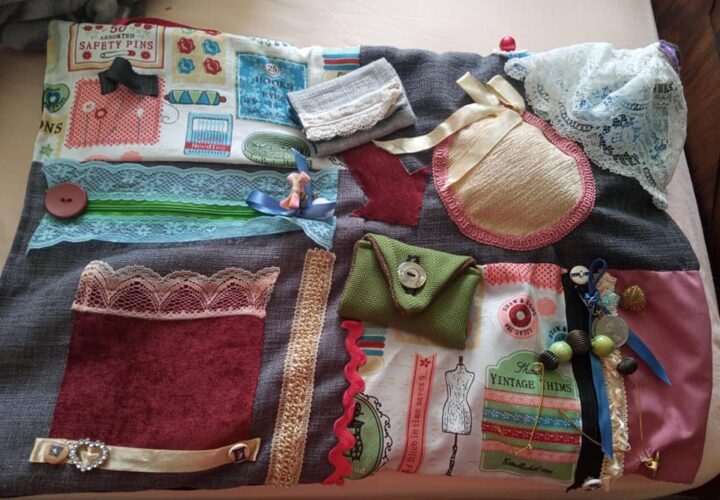Dementia caregiving expert Teepa Snow shares wisdom on how to know when to step away from a caregiver role or seek more support.
Caregiver burnout is real. For caregivers of loved ones with dementia, having a support system is crucial, especially due to the amount of stress involved in the task at hand. But how do you avoid becoming burned out?
In a recent Being Patient Live Talk, caregiving consultant and occupational therapist Teepa Snow outlined how to know the right time to step away from caregiving and ask for help. Her company, Positive Approach to Care (PAC), provides online and in-person education and products to support those living with brain change — and her mission is to shed a more positive light on dementia.
“If you can’t find something you like every day, your primitive brain will tell you that you are not thriving,” Snow told Being Patient. “Frankly, if you have no ability to thrive, you will not survive long as a carer. You will start to burn out and deteriorate. If you’re already there, which any carers are, it’s time to recognize, ‘I could use some support.’ If you have to keep going, you definitely want some different support in place to make this work.”
Using this experience working with caregivers and providing strategies, she outlined three key questions to ask if you’re evaluating whether caregiving burnout is too much.
1. How much stress are you under?
The first step is to evaluate how much stress you’re dealing with every day. Snow outlines key questions like “How do you rate yourself? Would you say you’re stressed but managing it? Or do you feel like you’re in distress multiple times?” While stress can be normal, especially for caregiving, it shouldn’t be constant.
Snow adds: “When you have distress multiple times in a day, there is too much stress. We need to figure out what to do with that.” Evaluate how often you are stressed and in a moment of panic throughout the day. Once you actually look at how much stress you’re under, you can see how much your body is dealing with every day.
2. How well are you sleeping?
Sleep is important for maintaining quality brain health. And yet, studies have found that some 94 percent of caregivers are critically sleep-deprived. Just as you try to make sure your loved ones are sleeping, you should be too, Snow said. She recommends asking yourself:
- How well am I sleeping?
- How much am I sleeping?
Snow explains that you need “at least six hours of decent, good-quality sleep, and if not, it’s time to look at that.” That’s because lack of sleep could indicate health issues you, the caregiver, are experiencing. Snow adds that “we don’t always recognize [that] we might be having issues with sleep apnea, we might be having issues with sleep, which is impacting our brain potentially and causing brain changes.”
If you’re not getting enough sleep, it’s always a good idea to take a look at your schedule and potentially check with your doctor, she said: You deserve to sleep and rest.
3. How would you describe the way you feel?
Everyone has their own ups and downs as a caregiver. Some days are better than others. However, if the words “socially isolated,” “trapped,” or “abandoned by others” applies to how you feel consistently, it may be time to evaluate the level of caregiving you can provide. Snow explains that “if you feel those words are appropriate, ‘abandoned’ or ‘trapped,’ then it’s definitely time to get some support in place or reevaluate your role because trapped or abandoned is a dangerous place to be.”
To delve deeper into these feelings, Snow advises evaluating “what you’re uncomfortable with or what you find painful because when we start unpacking what’s uncomfortable, what’s actually painful when we have more things that are painful than uncomfortable, it’s time to back it down and find some other kinds of ways or supports for doing it.”
As an addendum to this advice, Snow clarifies, “When you look at yourself, and you say, ‘I am not doing anything right,’ ‘I don’t like myself,’ ‘I don’t like what’s going on,’ or ‘I don’t like my person,’ it is definitely time to go ‘oh.’” Looking at these feelings and delving into what you’re feeling can help you identify whether it’s working or not, she said.
When it’s time to ask for help with caregiving
If you find you’re not getting enough sleep, are under too much stress, and feel “trapped” or “abandoned,” Snow said, it’s time to find a way to step back from caregiving and ask for help. Caregivers deserve to be able to thrive — and in order to care for loved ones, one must care for themselves.
When know it may be time to reach out for help in your caregiving, where do you turn? Here are a few resources to get you started:
A Step-By-Step Guide to Assembling a Dementia Caregiving Team
Sharing & Caring: How To Share the Work of Family Caregiving
Yes, You Can Get Paid For Being A Family Caregiver. Here’s How
Where to Find Online Alzheimer’s Support Groups for Patients and Caregivers
Katy Koop is a writer and theater artist based in Raleigh, NC.





